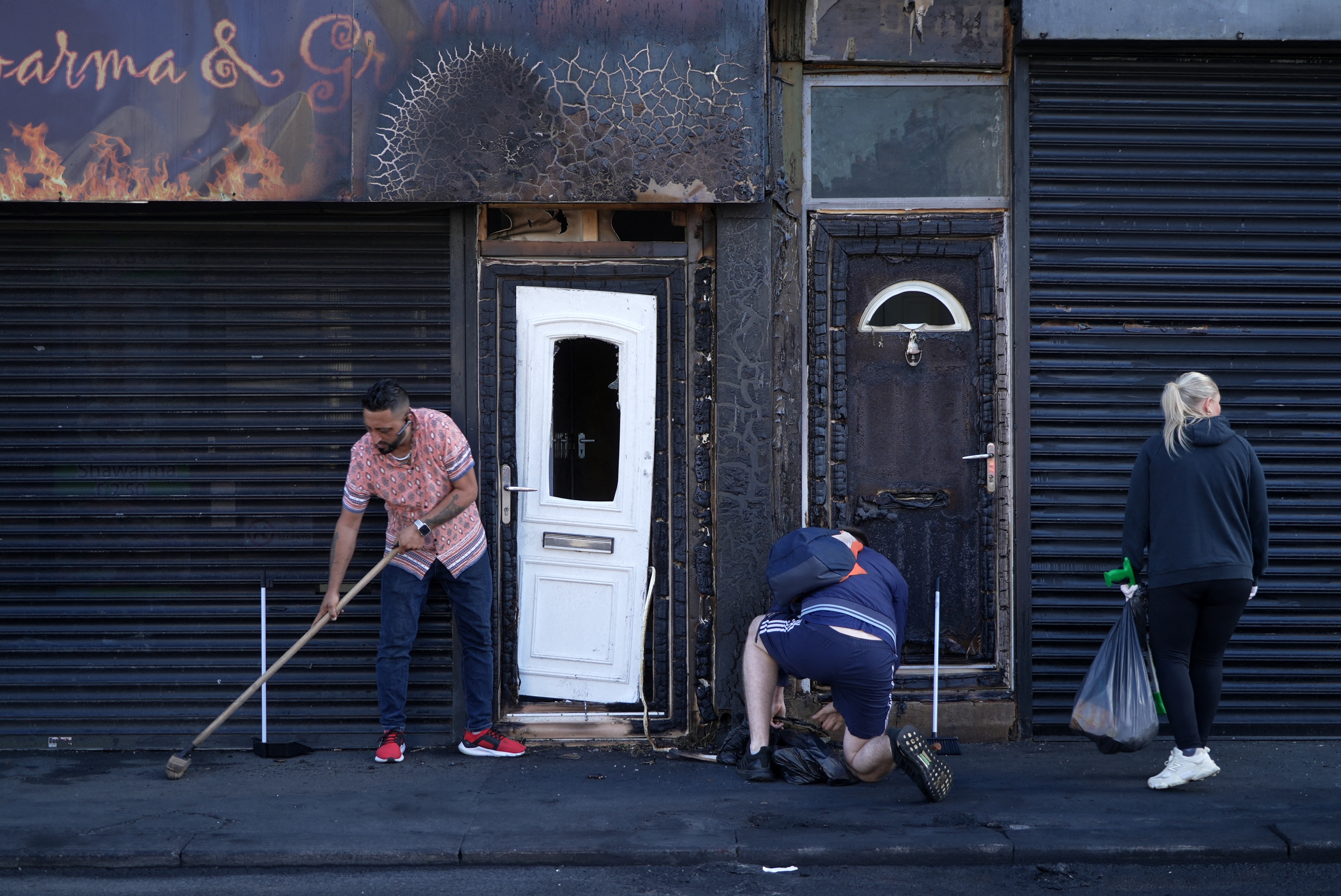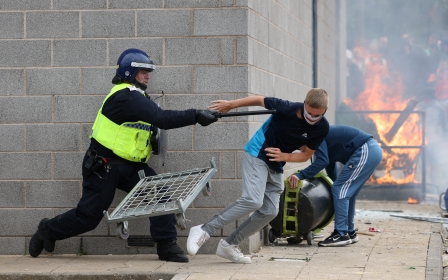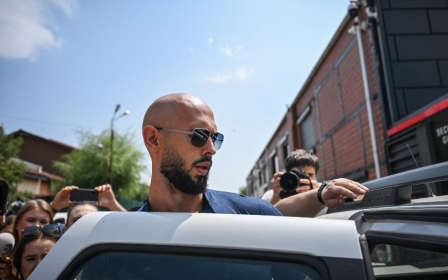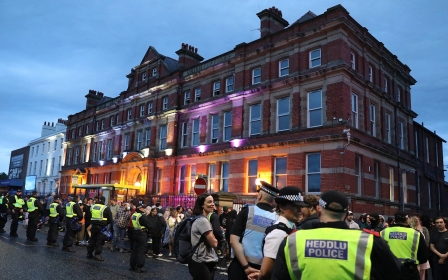UK riots: Syrian employee of destroyed Belfast shop says Muslims 'living in fear'

An employee at a Syrian supermarket that was attacked by rioters in the UK city of Belfast has said the Muslim community is "living in fear", with some questioning whether they could ever live in peace following the unprecedented violence.
Bashir, who did not provide his surname, slammed the Northern Ireland police force for their response to the mob attack over the weekend, telling a special meeting of Belfast's City Council on Monday that the Sham supermarket had been firebombed on three separate occasions by anti-immigrant and anti-Muslim mobs.
"Around 11pm, one my friends gave me call and said your shop is burning, please come," Bashir told the council meeting.
"After a minute, six men who were masked attacked me. They came out of nowhere and they tried to stab me. I almost got killed. For what? For nothing. Something I didn't do."
Riots have swept the UK for nearly a week after an anti-immigrant and anti-Muslim misinformation campaign spread on social media, following a stabbing attack that left three children dead in the northern English town of Southport.
New MEE newsletter: Jerusalem Dispatch
Sign up to get the latest insights and analysis on Israel-Palestine, alongside Turkey Unpacked and other MEE newsletters
Axel Rudakubana, a 17-year-old born to Christian Rwandan parents, has been charged with the murders.
Bashir told the council that in the wake of the killing, abuse was specifically being directed against "the Muslim community".
He said that he and the shop owner, Abdelkader Alloush, a man who came to Northern Ireland in 2016 after fleeing the war in Syria, had to stand for hours watching the building on fire before they could get inside.
"There is nothing, literally nothing left inside there, ashes only."
"We can rebuild it, that’s fine. But the question is, can we be safe? Can we live in peace? Can we go back to our work without feeling any fear?
"People can show us their sympathies. That's good, but I want action. The police should protect us… we live in fear, I live in fear when I walk the street. I am watching my back."
The violence, which has led to numerous arrests and put Britain's Muslim community on edge, presents a significant challenge for Labour Prime Minister Keir Starmer's month-old premiership.
It has also spotlighted hard-right agitators linked to football hooliganism at a time when anti-immigration elements are gaining some electoral success in British politics.
Starmer has accused "thugs" of "hijacking" the nation's grief to "sow hatred" and pledged that those committing violent acts would "face the full force of the law".
However, his administration has been criticised for failing to reach out to British Muslim community leaders and groups.
On Monday, Labour MP Afzal Khan published a letter calling on Starmer to engage with the Muslim Council of Britain (MCB).
He wrote that with attacks on mosques and "far-right rioters shouting Islamophobic hate", British Muslims were feeling anxious and unsafe.
He said that on that basis, Labour leaders needed to meet with national Muslim organisations, including the MCB, "to show your unequivocal support for Muslim communities".
On Sunday, UK Home Secretary Yvette Cooper announced that mosques would be offered greater protection through new emergency security that could be rapidly deployed.
"The targeted attacks we have seen on mosques in the last few days have been a total disgrace," Cooper said.
"It's part of criminal thuggery and violence that we have seen in some towns and cities that we simply cannot stand for.
"We cannot tolerate extremism, racism or Islamophobia in our country."
In the wake of the unrest, Starmer has traded barbs with Elon Musk after the tech billionaire claimed the wave of far-right violence hitting the UK was "inevitable".
Starmer’s spokesperson responded to Musk's post on Monday, saying there was "no justification for comments like that".
The billionaire then hit back, hours later, replying to a video Starmer posted on X, condemning attacks on mosques and Muslims.
Musk then called the prime minister "two-tier Keir", in reference to the conspiracy theory that police are treating white far-right "protesters" more harshly than minority groups.
Middle East Eye delivers independent and unrivalled coverage and analysis of the Middle East, North Africa and beyond. To learn more about republishing this content and the associated fees, please fill out this form. More about MEE can be found here.




